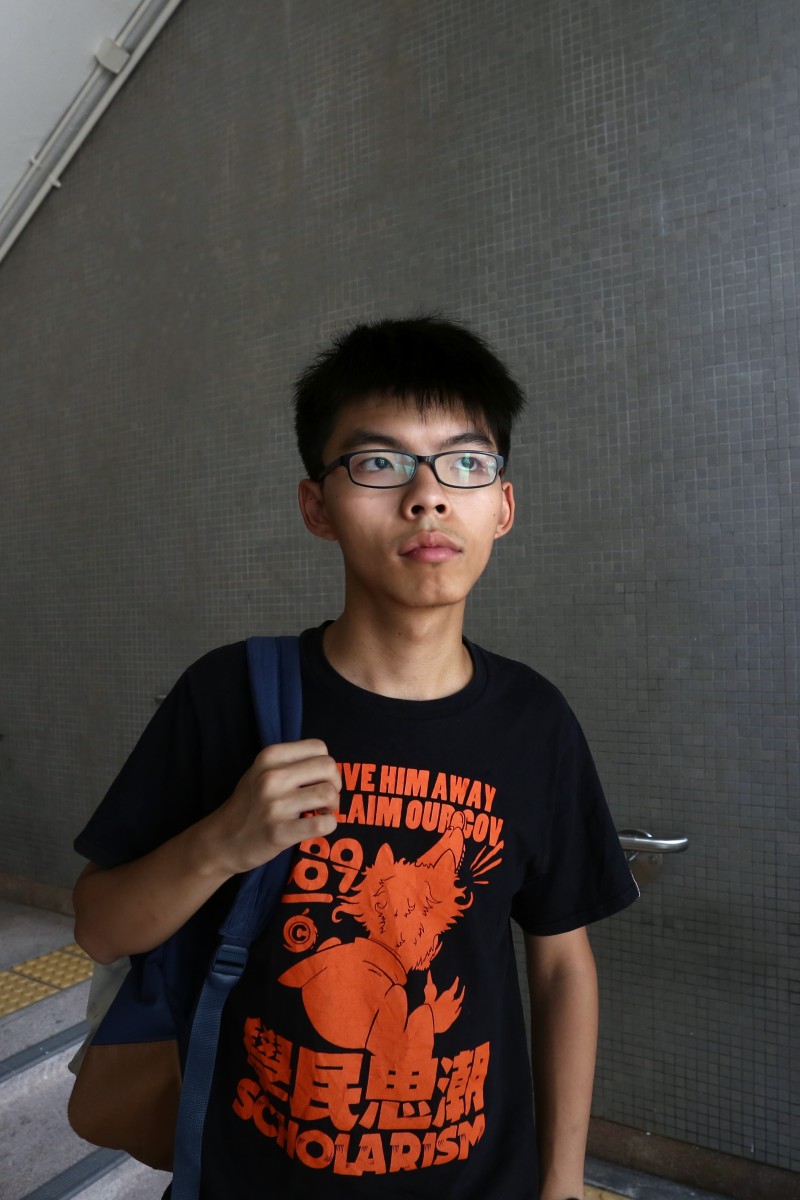
As the anniversary of the Occupy Central protests falls, Joshua Wong thinks there is a better way for the city to achieve its goals
 Joshua Wong thinks there might be a better way for Hong Kong
Joshua Wong thinks there might be a better way for Hong KongStudent activist Joshua Wong Chi-fung said another civil disobedience movement "will not be of much help" for Hong Kong in the next few years, as the 79-day Occupy movement taught him the need to change people's belief that democracy is only achievable under the government's rules.
Joshua was a Scholarism convenor and key player in the protests last year. He says his group is thinking about a campaign to push for "self-determination" for Hong Kong and amend its mini-constitution to achieve "genuine democracy".
The Basic Law says that when Hong Kong elects its leader by popular vote, a committee shall be responsible for nominating candidates. Scholarism and pan-democratic parties want the public to be allowed to put forward hopefuls.
"We hope that in three years, we can set up [new bodies to monitor the government] and a civil referendum system … and the long-term goal is to organise a vote to determine Hong Kong's political future after 2047," Joshua said, referring to the expiry date of Beijing's 50-year promise under the "one country, two systems" formula.
Joshua, a 19-year-old Open University student, added that in such a vote, which could be held in 2030, Hongkongers should be allowed to choose from three options: continuing "one country, two systems"; adopting the mainland's systems; or independence after 2047.
But Joshua says he is not a "pro-independence" activist because he does not think independence is the city's "only option".
Beijing has repeatedly warned against the rise of pro-independence sentiment in Hong Kong, and hinted it would not recognise any kind of "referendum".
But Joshua believes that if the new bodies that monitor the government become popular and a mature voting system can be set up, the 2030 "referendum" will put much greater pressure on the authorities.
"It is crucial the pan-democratic parties push this with us, but … I am disappointed they are still calling for the government to restart the political reform process," Joshua said.